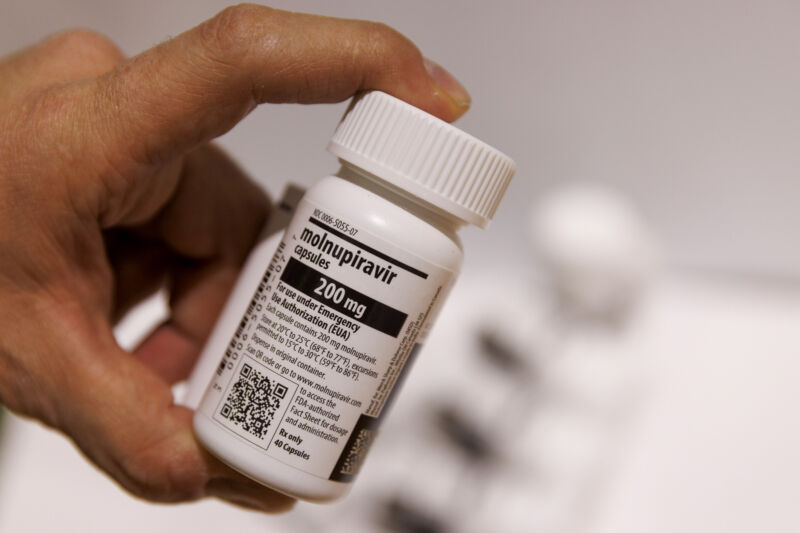Anti-viral drug backfires: COVID drug linked to viral mutations that spread

Enlarge / A worker handles a bottle of Merck & Co. and Ridgeback Biotherapeutics LPs molnupiravir antiviral medication in a warehouse in Shoham, Israel, on January 18, 2022. (credit: Getty | Kobi Wolf)
With every new infection, the pandemic coronavirus gets new chances to mutate and adapt, creating opportunities for the virus to evolve new variants that are better at dodging our immune systems and making us sicker.
Anti-viral drugs, such as Paxlovid and remdesivir, aim to halt this incessant evolution in individual patients—shortening illnesses, snuffing out opportunities for mutation, and reducing transmission. But one antiviral appears to be backfiring—allowing SARS-CoV-2 more opportunities to mutate.
According to a new peer-reviewed study in the journal Nature, the anti-viral drug dubbed molnupiravir is linked to specific SARS-CoV-2 mutation signatures that happened to spring up in 2022 when the drug was introduced.
Comments
Post a Comment